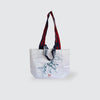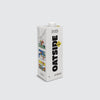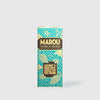Ethiopia Magarrissa Refisa
Description
Country/Region: Ethiopia/Nensebo, West Arsi
Varietal: Welisho, Kurume
Processing: Washed
Elevation: 1870 - 2000 m.a.s.l.
We Taste: Floral, Nectarine, Lemon Tea
Owned by Negusse Debela, the Refisa washing station is known to produce sweet, clean and floral coffees characteristic of the region. Located in Nensebo, West Arsi, it is supplied by 389 active smallholder farmers that grow not only coffee but also other crops such as teff, false banana and corn.
Refisa is one of four washing stations owned by SNAP Trading a quality-focused exporting company. Founded in 2008 by Negusse, his expertise in supply chains helped to grow the coffee business quickly. With great desire to improve coffee quality, he transfered what he knew about processing and cleaning coffee to producers, at the same time keeping in mind to protect the environment through waste recycling systems.
SNAP Coffee also supports the community near the washing station by building schools and providing computers and other facilities. They also invest in infrastucture such as roads to less accessible areas, as well as clinics to improve healthcare in the region.
During harvest, coffee cherries are handpicked and brought to the mill. Here, the cherries are pulped with a traditional Agaarde Discpulper, where the skin and fruit pulp are removed. The machine also pre-grades the coffee, by its density in water.
Thereafter, the coffee undergoes wet fermentation for 72 hours, where the mucilage gets broken down. The coffee is washed in channels, and graded once again. The lower density coffees will float and are removed, leaving the denser, high quality beans. The coffee is soaked in clean water for 2 hours, and then dried in layers up to 2cm thick, over a 8-10 days, with hand sorting performed for 2-4 hours per day.
Post-drying, the parchment is packed in jute bags and stored at the warehouse, separated by process and grade. This helps to condition the coffee, achieving a more uniform moisture level. The coffee is then moved to the capital, Addis Ababa, where it is finally milled at SNAP's pristine dry mill before export.












